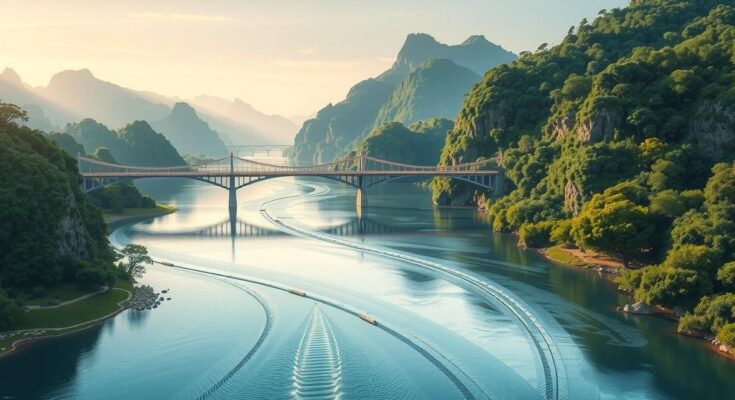The DR Congo crisis, fueled by M23 rebel advances, involves neighboring nations such as Rwanda, Burundi, and Uganda, each with distinct motives. President Tshisekedi seeks to regain lost territory and secure his government amid accusations against Rwanda for support of rebels. Regional actors, including South Africa, are implicated in the dynamics of conflict, reflecting a complex web of historical and geopolitical interests influencing the situation.
The crisis in the Democratic Republic of the Congo (DRC), particularly involving the M23 rebels seizing territory in the mineral-rich eastern region, has led to a humanitarian and diplomatic emergency, with multiple neighboring nations involved. Several African nations currently have troops deployed in the area, known for its history of foreign interference. The DRC, a nation two-thirds the size of Western Europe, is part of both East and Southern African regional organizations, which are collaborating to convene an emergency summit to address the escalating conflict.
President Félix Tshisekedi of the DRC aims to reclaim territories lost to the M23 rebels, especially the strategic city of Goma. He accuses Rwandan President Paul Kagame of supporting the insurgents with military resources and attempting regime change to exploit the DRC’s mineral wealth. Despite UN findings corroborating these claims, international calls for action remain unfulfilled, contributing to Tshisekedi’s concern for his political survival amidst rising internal opposition.
Kagame’s engagement in this conflict highlights Rwanda’s historical interventions in the DRC, rooted in the aftermath of the 1994 Rwandan genocide. While Kagame denies military support to the M23, Rwanda asserts it is defending itself against threats from Hutu armed groups operating from the DRC, accusing DRC forces of complicity. Rwanda seeks to reaffirm its narrative that the conflict primarily concerns DRC, while also aiming to maintain influence over the eastern DRC region, driven partly by access to its mineral resources as well as political rivalries.
Burundi, which borders both Rwanda and the DRC, has deployed thousands of troops in the DRC to combat Burundian rebels. President Evariste Ndayishimiye issued a stern warning against Rwandan aggression, asserting that further advances could prompt a spread of conflict into Burundi. Burundi’s primary concern is regime stability in Bujumbura, with fears that Rwandan influences in the DRC could destabilize the government if the M23 continues to advance.
Uganda has troops in eastern DRC aiding in operations against militant threats but exhibits a complex role, allegedly offering tacit support to the M23 while publicly denying such claims. The Ugandan military is preparing defensive positions amid reports of troop movements toward the conflict zone, reflecting escalating regional tensions and concerns over looting in the DRC, particularly of gold and other resources.
South Africa, contributing troops to regional security efforts, recently became embroiled in tensions with Rwanda following a deadly incident involving soldiers. President Cyril Ramaphosa criticized the Rwandan Defense Forces (RDF), prompting a harsh backlash from Kagame, indicating increasing rifts between East and Southern African political alliances. The EAC advocates for direct negotiations with the M23, contrasting with the SADCC’s opposition to Rwandan incursions through its support for DRC’s sovereignty.
The situation in the Democratic Republic of the Congo, exacerbated by the activities of the M23 rebel group, has turned into a significant humanitarian and diplomatic crisis. The DRC’s rich mineral resources have attracted various external interests, triggering historical conflicts over territory and influence among neighboring countries, particularly involving Rwanda, Burundi, Uganda, and South Africa. The complexities of the regional dynamics in this conflict reflect both the geopolitical aspirations of these nations and their historical involvement in the DRC’s internal affairs.
The DRC crisis is a multifaceted conflict involving significant regional players, each with their own interests and geopolitical aspirations. President Tshisekedi is focused on reclaiming lost territory and ensuring his government’s stability against the backdrop of external pressures, primarily from Rwanda and Burundi. Meanwhile, Uganda navigates a delicate balance of supporting the DRC while potentially aiding the M23, and South Africa finds itself caught between competing regional alliances. Overall, the interplay of military and political maneuvers among these nations poses grave implications for the DRC’s sovereignty and regional stability.
Original Source: www.bbc.com




